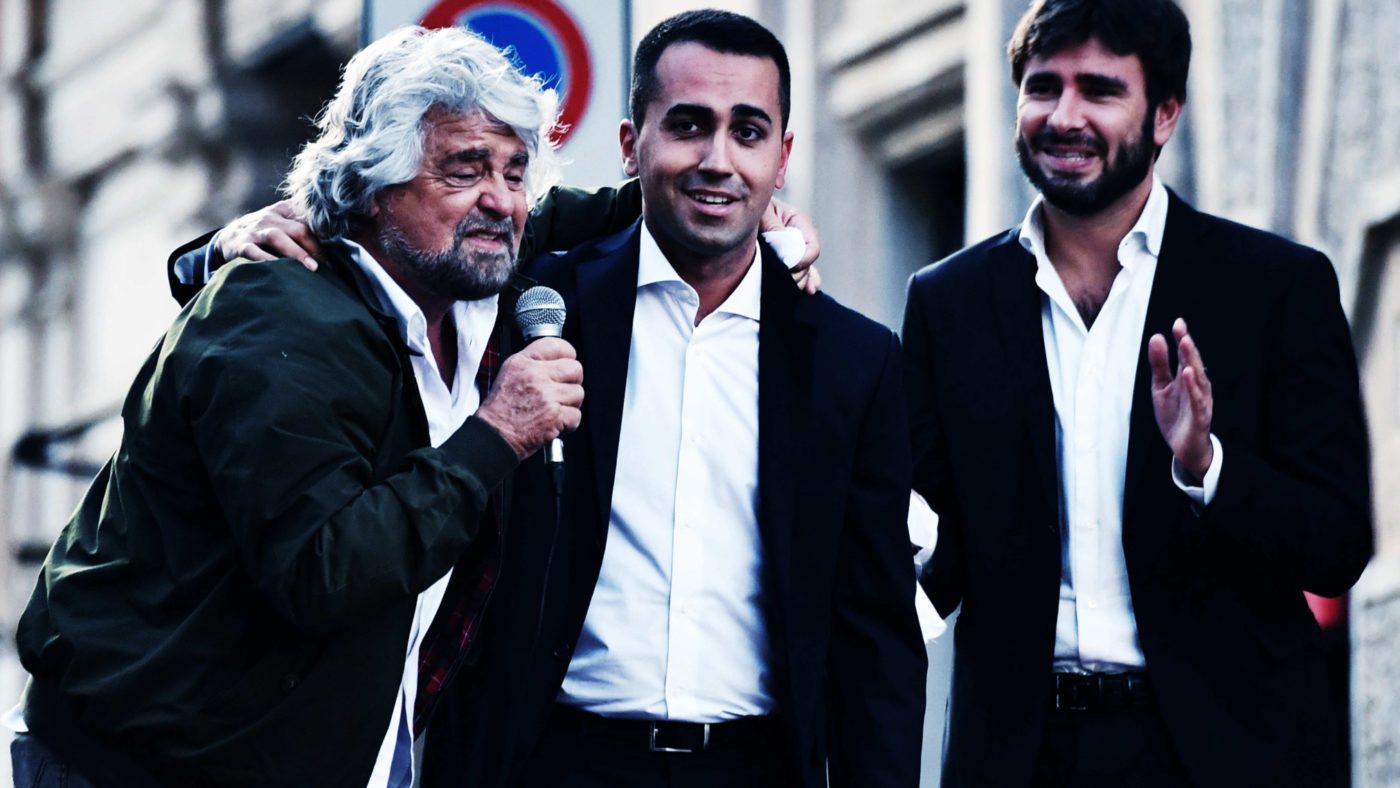The end of the year brought Italians the expected announcement that parliament would be dissolved. It is now confirmed that the next elections will be held on March 4. The ballot comes at a crucial moment for the country: Italy’s economy is slowly picking up, following a broader European recovery. But many fear that the vote could upset the trend and today’s figures show that youth unemployment, although it has been reduced, is still at 32.7 per cent.
The centre-Left forces that since 2013 have formed the bulk of successive governments overseeing Italy’s recovery have been losing popular support and are weakened by internal divisions. These divisions have resulted in the emergence of two different coalitions, a bigger one on the centre-Left led by former Prime Minister Matteo Renzi’s Democratic Party, and a smaller one on the Left, which will run separately. As a result, the centre-Left appears to be in weaker shape than the Right and the Five Star movement, the other main blocs that will contest the March ballot.
Leading the polls is the Right-wing coalition led by Silvio Berlusconi’s Forza Italia and the once-separatist Lega (League, previously Northern League). The Right in Italy has been gaining ground for quite some time and is expected to win the largest share of the popular vote. Yet, despite their increasing popularity, it is not clear whether they will be able to secure a governing majority, although the latest polls suggest they might not be too far from this.
In light of previous experiences under Berlusconi’s governments, Europe and the markets are looking with some caution at this prospect. But even if the Right secures enough seats to govern, the stability of their coalition remains to be tested. Tensions between Forza Italia and the League have already emerged. And while they have been temporarily quietened, due to the incentive the complex Italian electoral system places on the formation of pre-electoral alliances, they might well resurface after the vote.
Even less reassuring for investors is the possibility of a government led by the anti-establishment Five Star Movement. Its policy proposals have been called vague and ambivalent. The Movement remains untested in government at the national level and, although it has been a strong voice in opposition, it is difficult to predict what impact it might have in power. At any rate, the prospects of a Five Star government are more limited than the polls, which forecast it as the party with the most votes, might seem to suggest. This is due to the Movement’s distaste for alliances in a system that favours both pre-electoral and post-electoral deals.
It’s possible that the vote might leave Italy with no clear winner at all. As I discussed elsewhere, Italy’s complex electoral law provides for an arrangement which is two-thirds proportional (candidates elected in multi-member constituencies through lists) and one-third majoritarian (single-member constituencies which follow the first-past-the-post system). The strongly proportional aspect means that then vote could result in no immediate governing majority emerging. With only two months to go before Election Day, uncertainty remains the word to describe the state of Italian politics.
In the face of great uncertainty, something appears certain. The election is set to confirm the end of Italy’s bi-polar moment. The country is witnessing a reshaping of its political landscape, which started with the 2013 elections and which is likely to be further consolidated in March. The new fragmented panorama adds further unpredictability to a political system already traditionally unconducive to stable governments.
This poses questions on the short-term future of Italy and of its role in Europe. Yet the impact of this uncertainty should not be exaggerated. Italian institutions have grown used to dealing with times of political instability and the state apparatus and diplomatic system largely function regardless of different governments’ inputs.
More meaningful for the medium-term future of the country will be the post-electoral dynamics that could be triggered off in the case of no clear winner emerging from the ballot box. The most interesting role in this respect is to be played by the Five Star Movement.
The Movement recently made some shy openings towards other parties. Some key representatives of the Left-wing coalition have said a post-electoral agreement with the Five Stars should not be ruled out a priori. Likewise, a post-electoral League-Five Star alliance is seen by many commentators as a possibility, should the Right-wing fail to win an absolute majority. It would be interesting to see what alternative this (non-)party, which claims to be beyond Left/Right logics, would opt for if confronted with the necessity to choose.
The reshaping of the Italian political landscape might have important implications for Europe too, although at a practical level it is difficult to predict what could change. The Right-wing coalition has agreed a programme which presents “fewer restrictions from Europe” as one of their central objectives. Yet the strengthening of Berlusconi’s Forza Italia as the leading party on the Italian Right is likely to tame the European stance that such a government could take. Berlusconi is resolute that Italy should remain part of, and cultivate key alliances within, the EPP family.
The scenario of an agreement between the League and the Five Star Movement would almost certainly have bigger implications. Such a government would likely represent a clean break with the past for Italy. It could overhaul the country’s entire European policy.
Yet, even in the absence of a major upset, the expected shrinking of the centre-Left, traditionally the most supportive of the EU in Italy, combined with the growth of the Right and a strong performance of the Five Star Movement, would send a powerful message to the EU: Euroscepticism (or at least a hard form of Eurocriticism) has by no means disappeared and in fact could be making its way to power in key member states.


